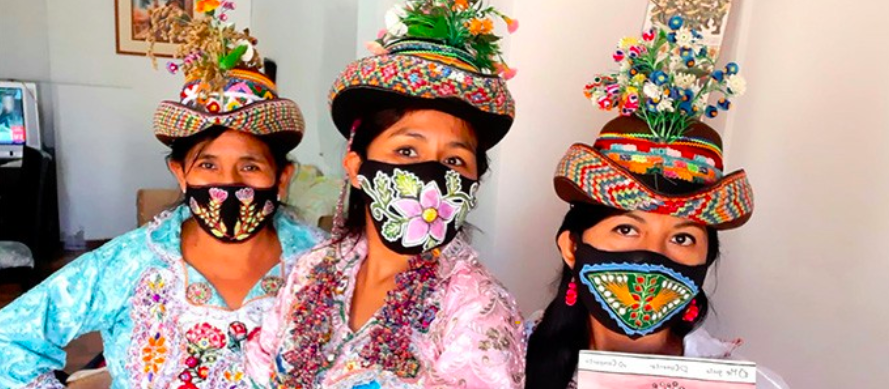
This has not only caused disruptions in the social and cultural lives of many, but has also resulted in loss of income for many bearers and practitioners of intangible cultural heritage. Those working in the performing arts and traditional crafts, who largely operate in the informal sector, have been particularly hard hit. Although it is still early to assess the economic costs, artisans the world over have responded to the survey noting loss of livelihoods as they face challenges in supplying orders and accessing raw materials.
Online initiatives and platforms have sprung up, providing new ways to disseminate and transmit knowledge about intangible cultural heritage. In Georgia, traditional feasts continue to take place online, with tables of traditional food and drinks arranged in front of computer screens and toasts performed virtually.
Social networks are playing a prominent role in helping people stay connected while being physically apart. For folk singers in Rajasthan, India, who must often travel to perform, live performances are organized through Facebook, providing a sense of solidarity with other artists and inspiration to continue.
More time spent in the home has heightened opportunities for teaching about intangible cultural heritage within the family. From Jamaica to Lebanon, many traditional cultural practices, such as culinary traditions and crafts, are being revisited under lockdown. Parents are cooking traditional meals with young members of the family, using recipes passed down from older generations and sharing the results online.
Many elements of intangible cultural heritage are being transformed in the context of the pandemic to support and reinforce public health measures. Artists in Peru and China, for example, are creating face masks using traditional design and techniques. Amazigh communities in the Moroccan Atlas Mountains share poetic verses related to COVID-19. Traditional string puppet performances in Sri Lanka tell stories of confinement and social distancing, while in Senegal, the mythical figure of Kankurang, traditionally the guarantor of order and justice, parades in the streets from 8pm until dawn, enforcing village curfew.
Living heritage continues to be important for all of us during times of crisis, providing a sense of connection and continuity and reinforcing the social bonds between us. How have you been engaging with your living heritage in response to the pandemic? And what role can living heritage play in such difficult times?
Share your story through our online survey and tell us your experience of living heritage during the COVID-19 pandemic.
